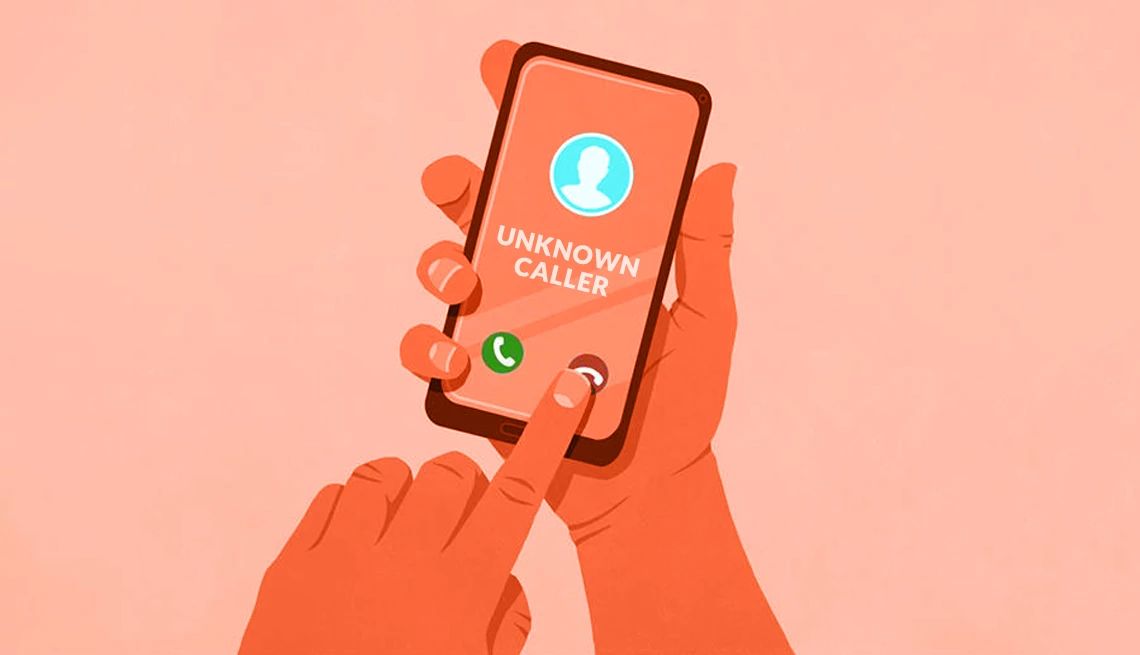AARP Hearing Center


In this story
Phony calls • Types of scams • Red flags • Protect yourself • Get help
We may be in the digital age, but the telephone remains a key weapon in scammers’ arsenals. The Federal Trade Commission (FTC) found that contact by phone call was the second most common way scammers reached out to victims in 2024, after email. But losses from scams that began over the phone were almost double those of scams started over email.Once they get you on the phone, scammers use false promises, aggressive sales pitches or phony threats to take your money or pry loose information they can use to steal your identity (or both).
More than 2 million people registered complaints with the FTC’s National Do Not Call Registry in 2024. Medical and prescription scam calls were the most common complaint, followed by impostor scams and bogus promises to reduce debt, according to the FTC.
Technology has made this illicit work easy. With auto-dialers, shady operators can blast out robocalls by the millions. Readily available spoofing tools can trick your caller ID into displaying a genuine government or corporate number or one that appears to be local to increase the chances that you’ll answer.
8 common phone scams
Whether live or automated, scam callers often pose as representatives of the government, companies, or even your own family. Here are some common scams that may start with a phone call:
- A government agent has an urgent issue. They might say you owe back taxes, there's a problem with your Social Security account or Medicare card. Whatever the problem, they’ll say it can be resolved if you provide personal information or make an immediate payment.
- They can help you with your debt. They’ll claim they can help you resolve student loans, fix your credit, or help you qualify for a government grant.
- There’s a problem with your account. They may say you have strange charges on your Amazon account or a problem with your bank account and ask you to provide sensitive information. They might escalate the scam, saying you're suspected of criminal activity. Then, they connect you with someone claiming to be an FBI agent who wants to help you move your money for “safekeeping.”
- You’ve won big. They claim you won a cruise or hit the jackpot in a lottery or sweepstakes. You just need to pay taxes on those winnings or pay Publishers Clearing House a fee before collecting your cash.
- Donate to this worthy cause. They may pose as a legitimate charity or use a name for their bogus charity that sounds legitimate. They might claim to be with a veteran’s charity and ask if you support the troops making off with the money you wanted used to help others.
- Your children or grandchildren are in trouble. Scammers will pose as a family member who has been in an accident or is under arrest and needs money fast.
- Your car warranty has expired. These calls play on your fear that without that manufacturer’s warranty, you might pay thousands of dollars to fix issues down the road.
- You missed jury duty. An arrest warrant has been issued for you as you failed to show up for your civic duty. You’ll need to pay a fee to avoid jail time.


































































More on Scams and Fraud
Do You Really Need an RFID Wallet or Purse?
It sounds like a sci-fi movie plot: A scammer uses a card reader to scan your credit card and steal your data from afar. So, should you be concerned? Find out what the experts have to say.
How to Spot Online Shopping Scams
Learn what to look out for, as well as some other precautions you can take
Your Smart Guide to Hearing Health
23 ways to keep hearing clearly